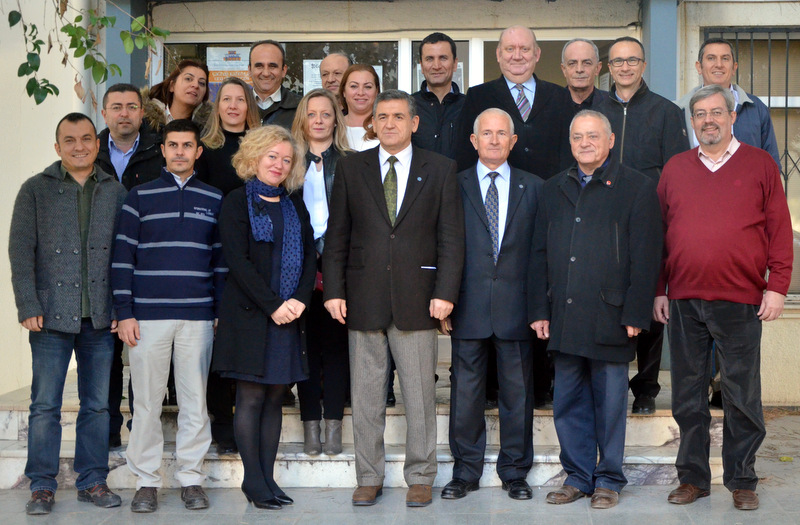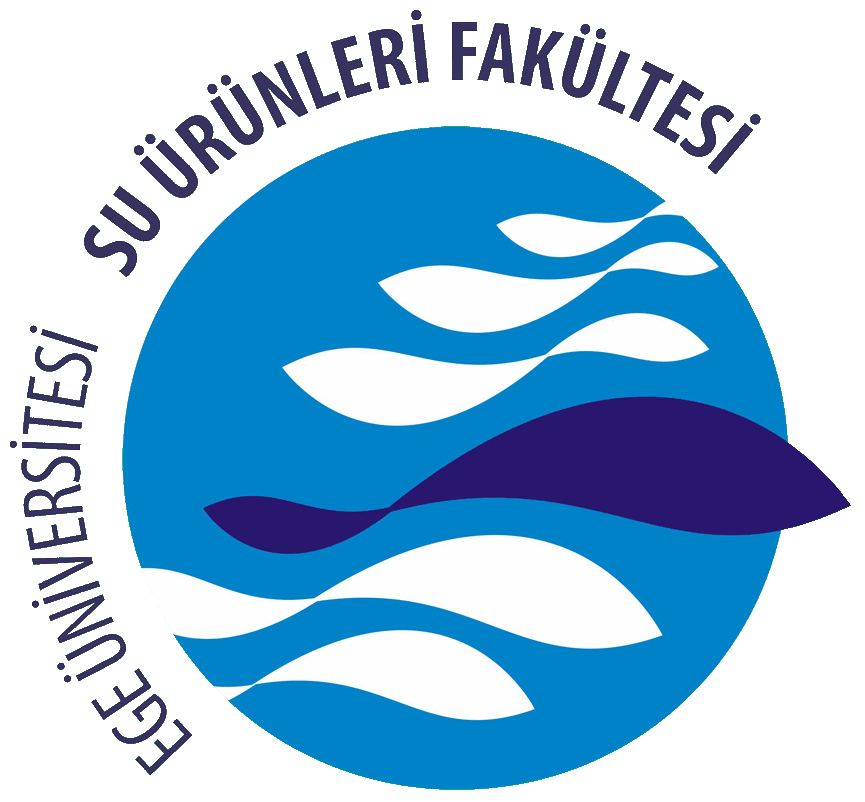Marine Biology Section
Head of Section: Prof.Dr.Ahmet Kerem BAKIR

As well as education and training activities, the Marine Biology Department conducts research on the biological diversity of marine and lagoon ecosystems and the determination of the population status of living organisms constituting this diversity and the determination of the ecological quality status of these ecosystems. Many projects including EU-funded projects, especially Tübitak projects are being carried out in the benthos, biogeochemistry, ecotechnology, ecobiotest, ecotoxicology, chemistry and planktonology laboratories of the department and articles are produced from these projects. In addition to scientific projects, the textbooks produced by the members of the department operating in the field of education and training are still among the basic textbooks in our faculty and other faculties. The basic course of the department is Marine Biology, in which the physico-chemical properties of seas and communities are examined. In addition, General Biology, Chemistry, Physics, Aquatic İnvertebrates, Planktonology, Aquatic Ecosystem Management, Ecotoxicology, Chemical Oceanography, Environment and Water Pollution, Microplankton in Seawater Quality Monitoring, Underwater Imaging Techniques, Wastewater Treatment Techniques, Water Quality and Control, Ecology, Bentology, Physical Oceanography, Biological Oceanographic Processes, Biodiversity and Conservation, Marine Exotic Species courses are presented by the staff of the department. In the benthology laboratory, qualitative and quantitative samples collected from different habitats and depths in the benthic region by sampling tools or by diving (tubular or free) are examined. Studies on breeding and nutrition biology of species belonging to different taxonomic groups living in the benthic region are also carried out in the laboratory. The main research topics of the benthology laboratory are; benthos taxonomy; biotic and abiotic factors affecting the distribution of the benthos; population dynamics; reproduction and nutrition biology; alien species; artificial reefs; pollution monitoring; ecological quality status; fouling and global warming. It has been carried out the determination of control mechanisms with the desk experiments and laboratory experiments for sustainable marine ecosystem the changes at the trophic levels ranged from single–celled organisms to higher level organisms in biogeochemistry laboratory. Many studies and projects have been implemented on the coastal ecosystem dynamics, effects of pollution on the marine environment. In Ecotechnology Laboratory where R&D Projects are carried out for domestic and industrial wastewaters treatment and development of recovery models by taking advantage of aquatic organisms, mainly phytoplankton; development studies of new techniques to enhance the removal performance, phycoremediation, phytotoxicity testing, isolation and cultivation studies of phytoplankton species are conducted besides some water quality parameters are measured and analyzed. The ecotoxicology and ecobiotest laboratories study to determine the adverse effects of chemicals in order to protect species and species communities. For this purpose, the toxic effects of pollutants on physiological, metabolic and reproductive toxicity are investigated in the laboratory by using test organisms which represent both the quantities of poisonous chemicals in the collected samples and the different stages of the food chain in the experimental environment. The data obtained in the laboratory environment are used for scientific purposes as well as for legal regulations for environmental protection efforts. Furthermore, in order to determine the environmental impact of industrial products, the application of standard tests and the preparation of reports are being carried out within the scope of REACH (European Union legislation envisaging registration, evaluation, authorization and restriction of chemicals). Laboratory of chemistry performs chemical analyzes of water and sediment samples taken from sea, river and lagoon areas within the scope of research projects. Electrochemical, spectrophotometric and other analytical standard methods are used for the qualitative and quantitative analysis of the samples. Qualitative and quantitative researches of phytoplankton, zooplankton, benthic diatom and dinoflagellate species are carried out in planktonology laboratory. The plankton materials sampled for this purpose are investigated by using various techniques applied with phase contrast and stereomicroscopy. In order to provide better education to students, practical trips/studies are made with students as much as possible, and it is aimed to reinforce the topics covered in the lessons with field studies. Many species have been identified by researchers of the Marine Biology Department, which are new to the science, and new species are added to these day by day. These new species and collected biological materials are preserved in the Ege University Faculty of Fisheries Museum (ESFM).
*For academic information, click the name of the contact.
| Name | Phone |
|---|---|
| Prof.Dr. Uğur SUNLU | +90 (232) 311 1944 |
| Prof.Dr. Melih Ertan ÇINAR | +90 (232) 311 1734 |
| Prof.Dr. Rahime ORAL | +90 (232) 311 3085 |
| Prof.Dr. Cengiz KOÇAK | +90 (232) 311 2415 |
| Prof.Dr. Alper DOĞAN | +90 (232) 311 1797 |
| Prof.Dr. Özlem ÇAKAL ARSLAN | +90 (232) 311 1941 |
| Prof.Dr. Ahmet Kerem BAKIR | +90 (232) 311 1718 |
| Assoc.Prof.Dr. Mehmet AKSU | +90 (232) 311 5205 |
| Assoc.Prof.Dr. Meltem BOYACIOĞLU | +90 (232) 311 5218 |
| Assoc.Prof.Dr. Aslı KAYMAKÇI BAŞARAN | +90 (232) 311 1796 |
| Assoc.Prof.Dr. H. Göknur ŞİŞMAN AYDIN | +90 (232) 311 5340 |
| Assoc.Prof.Dr. Fatma ÇOLAK SABANCI | +90 (232) 311 5345 |
| Assoc.Prof.Dr. Ertan DAĞLI | +90 (232) 311 2822 |
| Lecturer Dr. Levent YURGA | +90 (232) 311 1942 |
| Res.Assist.Dr. E. Çağrı TAŞ KIZILAY | +90 (232) 311 5206 |
| Res.Assit.Dr. H. Vedat AKER | +90 (232) 311 5206 |
| Res.Assist.Dr. Muhammet Ali KARAASLAN | +90 (232) 311 1943 |










